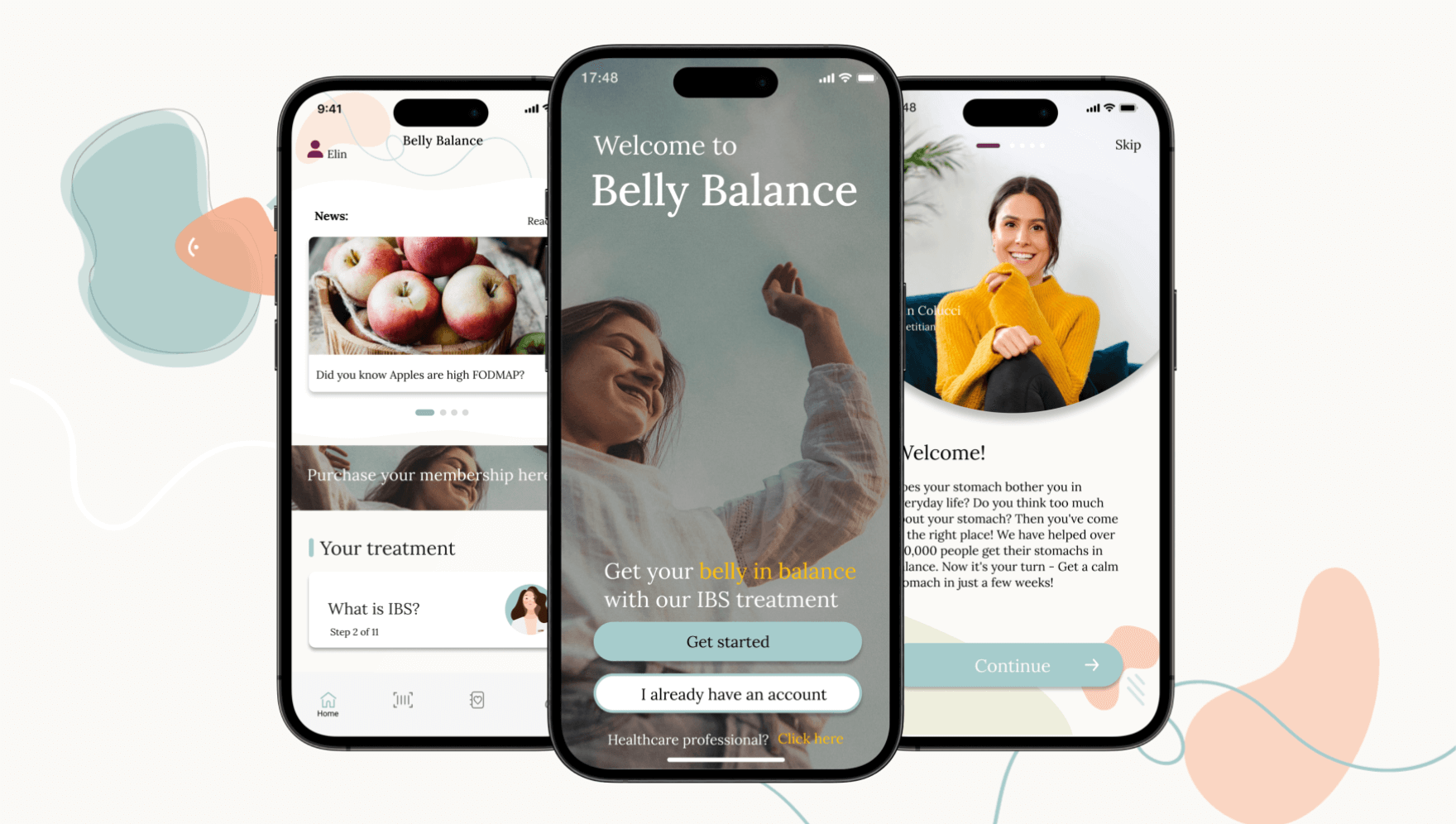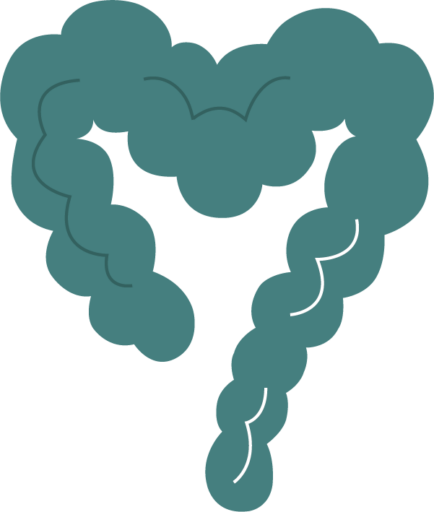
IBS-M
When the stomach alternates between loose and hard stools
In addition to symptoms like stomach pain, discomfort, bloating, and gas, most people with IBS tend to have a dominant type of stool over time. Therefore, IBS is classified into three subtypes depending on your stool type (IBS-D, IBS-C, and IBS-M).
It’s not uncommon to be constipated for a period and then experience diarrhea or looser stools. This can vary throughout the day or week. If this is the case, you likely have IBS-M (mixed or alternating bowel movements). Some people may also experience changes in their IBS symptoms over their lifetime, going from constipation to looser stools or vice versa. Most people, regardless of IBS type, generally improve with the FODMAP diet, but there are additional things you can try to balance your digestion.
- By keeping a food and symptom diary, you can more easily get an overview of your bowel habits and better understand how your stomach functions and what it reacts to.
- Now that you’re familiar with FODMAP, you have a better understanding of what may trigger symptoms and why. By following the dietary treatment step by step, you’ll better understand what triggers your stomach. Start by eliminating red-flagged foods, reducing coffee, nicotine, and alcohol, and note how your stomach feels. Then work on reintroducing foods to discover what works for you. Coffee can be tricky since some people find that their morning cup helps with regular bowel movements—so if that’s the case for you, keep that cup!
- Work on finding a balance when it comes to fiber. Fiber can help regulate your stool. Try brown rice, quinoa, kiwi, lentils, oats, and all approved fruits and vegetables. Chia seeds and flax seeds can also be good additions to porridge or yogurt.
- Try to eat regularly to give your stomach the best chance to work at a steady pace. If you eat irregularly, it’s easy to end up eating too large a portion or eating very quickly. This can cause unnecessary digestive reactions. So, take your time with meals, and for most people with sensitive stomachs, more frequent, smaller meals are better than a few large ones throughout the day.
- Probiotic supplements (good gut bacteria) might be worth trying. So far, research provides limited evidence that certain strains of probiotics can relieve IBS symptoms, and you can read more about probiotics here.
- A bulking agent like HUSK or Inolaxol could also be worth trying. HUSK consists of psyllium husk, a gentle fiber for the stomach. It’s available over-the-counter at pharmacies. The green variety is good for IBS. You can take HUSK on its own in a glass of water, or sprinkle it over porridge or yogurt.
Take control of your IBS today!
Ready to reclaim your life from IBS? Our app provides the tools and guidance you need to manage IBS effectively.
Download the AppSofia Antonsson
Reg. Dietitian, Belly Balance
Read more about

IBS - What is it?
Bloated , constipated or having a gassy stomach? IBS or Irritable Bowel Syndrome is a functional gastrointestinal disorder, meaning no physical issues can be found in the stomach or intestines; they just don’t function quite as they should.

How the app works
Download the app and become part of our community. We assist you in achieving a calm and happy stomach through treatment and tools available directly in the app.

About FODMAP
By learning which foods upset your stomach, you can make conscious choices and get quick symptom relief. With the low FODMAP diet, you receive structured assistance in understanding which foods your body tolerates better than others. No more guessing and pondering – you get the answer straight away!

